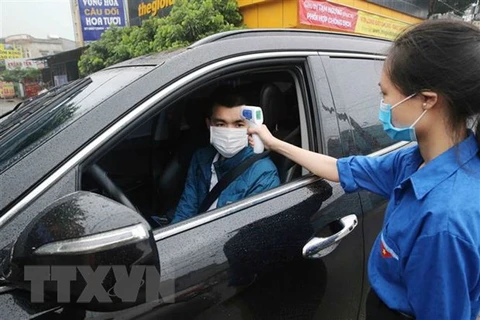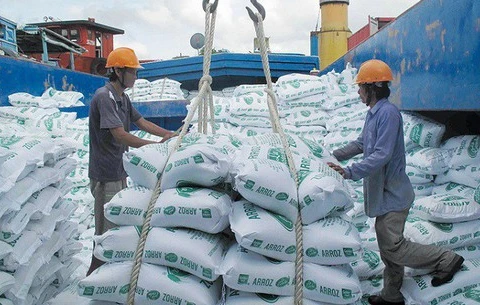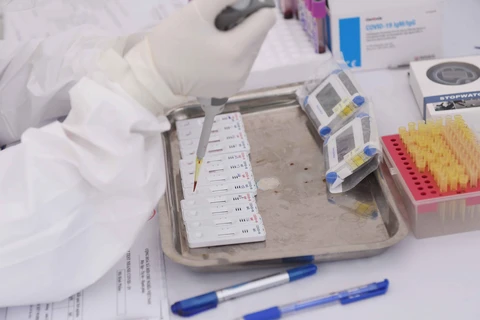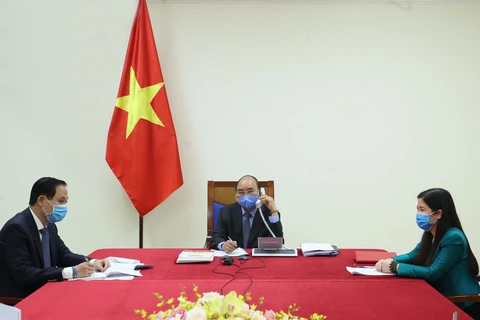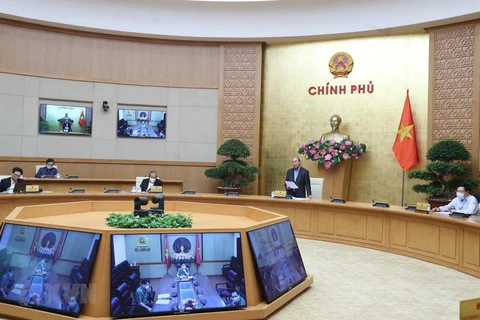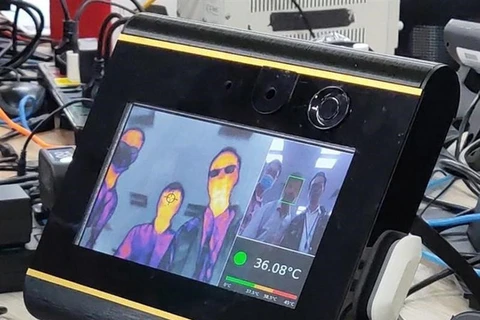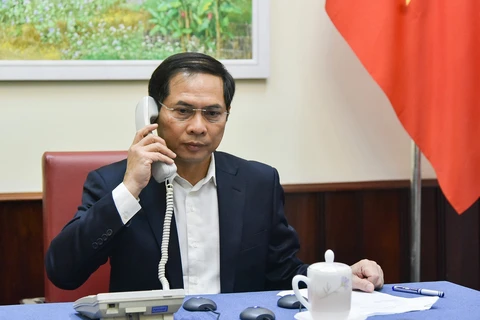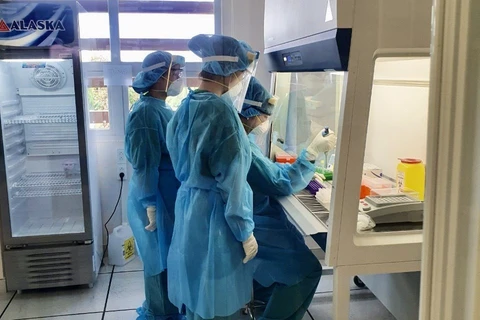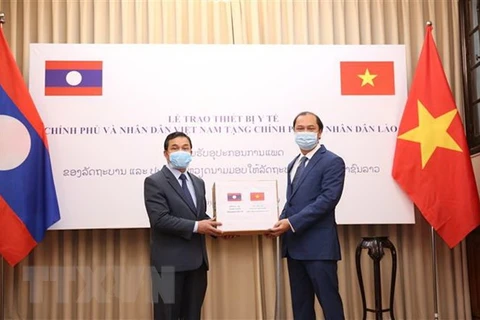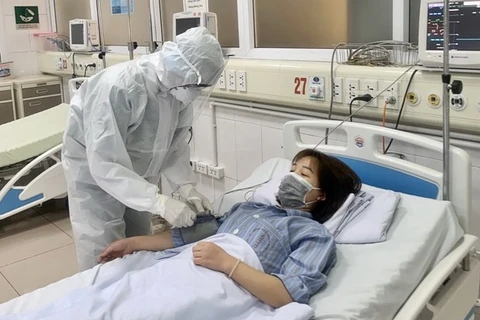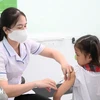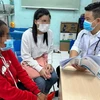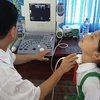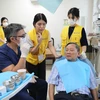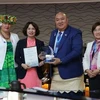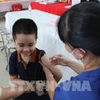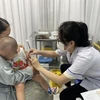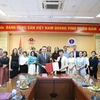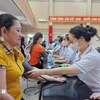Hanoi (VNA) - The Ministry of Health (MoH) has issued an urgent notice to trace all people in close contact with the 237th COVID-19 patient, a 64-year-old Swedish man, who was reported infected with the coronavirus on April 1 after being hospitalised for a accident.
From March 11 to 21, the patient stayed at Ngoc Anh Hotel at 38 Luong Van Tuy street in Ninh Binh province.
On March 21, he travelled from Ninh Binh province to Hanoi at 9.30am in a limousine coach.
From March 21 to 22, he stayed at Canary Hanoi Hotel at 4 Vu Huu Loi street, Hanoi.
From March 22 to 31, he stayed at Star Hotel at 2/25 Lam Du street, Hanoi’s Long Bien district.
On March 26, he was involved in an accident and was sent to Vietnam-France Hospital in an ambulance. He returned to a hotel afterwards.
On March 31, he started having a nosebleed and had an examination at Duc Giang General Hospital then was transferred to the National Institute of Haematology and Blood Transfusion.
The patient was confirmed to be infected with COVID-19 on April 1 and admitted to the National Hospital for Tropical Diseases.
The Ministry of Health requested all people visiting these areas during the mentioned time frames to immediately contact local centres for disease control and prevention for guidance on health monitoring.
As of April 4 morning, Vietnam had reported 239 COVID-19 infection cases, including 86 patients given all clear./.
From March 11 to 21, the patient stayed at Ngoc Anh Hotel at 38 Luong Van Tuy street in Ninh Binh province.
On March 21, he travelled from Ninh Binh province to Hanoi at 9.30am in a limousine coach.
From March 21 to 22, he stayed at Canary Hanoi Hotel at 4 Vu Huu Loi street, Hanoi.
From March 22 to 31, he stayed at Star Hotel at 2/25 Lam Du street, Hanoi’s Long Bien district.
On March 26, he was involved in an accident and was sent to Vietnam-France Hospital in an ambulance. He returned to a hotel afterwards.
On March 31, he started having a nosebleed and had an examination at Duc Giang General Hospital then was transferred to the National Institute of Haematology and Blood Transfusion.
The patient was confirmed to be infected with COVID-19 on April 1 and admitted to the National Hospital for Tropical Diseases.
The Ministry of Health requested all people visiting these areas during the mentioned time frames to immediately contact local centres for disease control and prevention for guidance on health monitoring.
As of April 4 morning, Vietnam had reported 239 COVID-19 infection cases, including 86 patients given all clear./.
VNA

